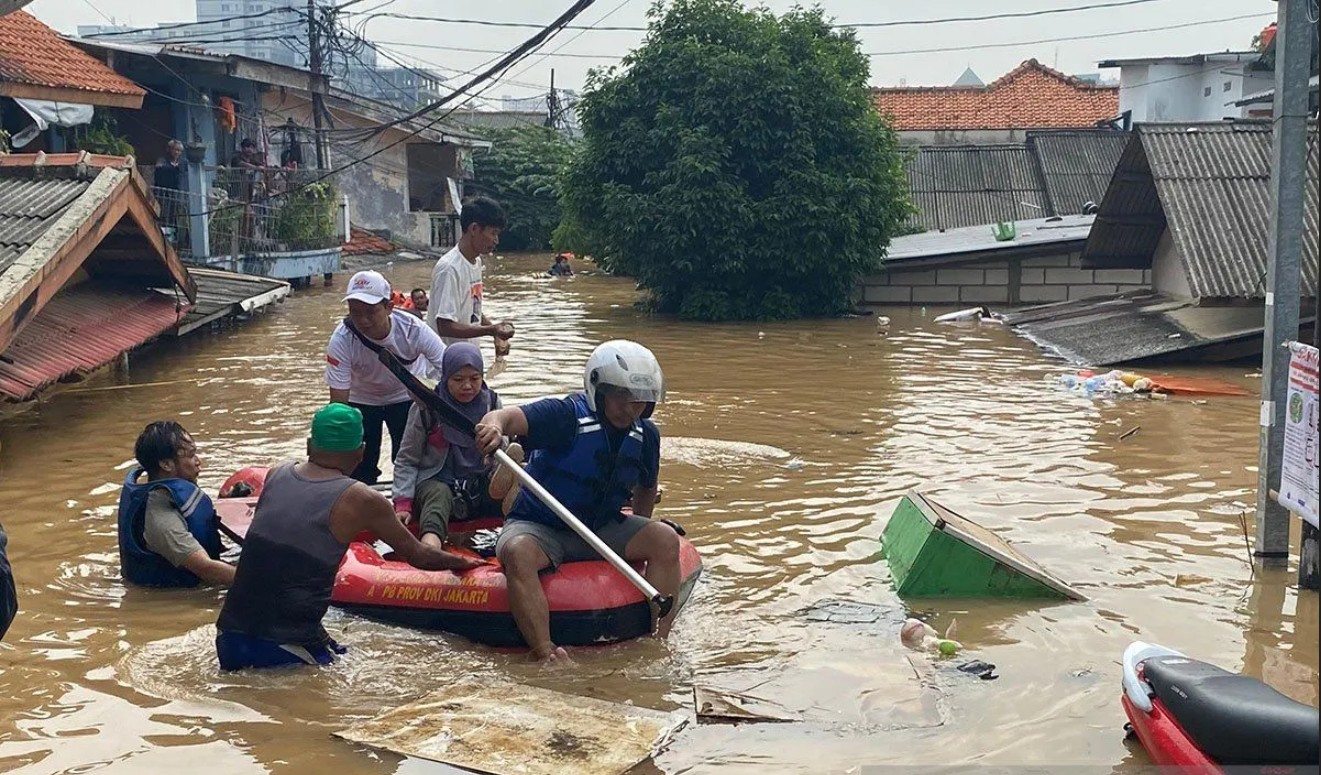The Jabodetabek area has been experiencing severe flooding since Monday (March 3) due to continuous heavy rainfall. As a result, many homes have been submerged, with water levels reaching up to 3 meters in some areas. This has disrupted transportation services and halted mall operations, raising concerns about the economic impact on various sectors.
How Flooding Affects the Retail Sector
According to Frank Tumewa, General Manager of General Agency Knight Frank Indonesia, the recent floods have significantly impacted businesses, including retail.
“The outlook for the business sector, particularly retail, has declined due to financial losses. Based on our data, the most significant losses in Jakarta have been in transportation, but retail has also been heavily affected. Many retailers, including those in malls, traditional markets, and SMEs, have suffered losses,” Tumewa stated during the Jakarta Property Highlight H2 2024 Retail & Industrial Sectors Online Press Conference on Thursday (March 6, 2025), as reported by detik.com.
Property Sector: Challenges and Solutions
Senior Research Advisor at Knight Frank Indonesia, Syarifah Syaukat (Sari), emphasized the need for property managers, both in retail and industrial areas, to implement integrated water management systems to mitigate flood risks, especially in low-lying locations.
She noted that many retail property managers have already adopted environmental management strategies, such as open spaces to accommodate runoff water.
“Since runoff water often exceeds capacity, property managers need a well-structured Plan A and Plan B to ensure effective water resource management that integrates building structures with broader water management systems. This is essential as flooding inevitably impacts the economic returns of property investments,” Sari explained.
Jabodetabek Property Sales Expected to Drop 20%
According to Real Estate Indonesia (REI), the flooding—particularly in Bekasi—is expected to negatively affect property sales in the region.
Bambang Ekajaya, Vice Chairman of REI, stated that property sales in flood-affected areas could decline by approximately 20% in the short term.
“Potential buyers will be more cautious when selecting properties, especially in flood-prone areas,” Bambang told on Wednesday (March 5), as reported by kontan.co.id.
Local governments are urged to take immediate action to control flooding and restore affected properties. Bekasi, one of the worst-hit areas, saw its city center completely paralyzed.
“However, with upcoming flood mitigation projects, such as the Giant Sea Wall, we are optimistic that the flooding issue will be resolved in the future,” he added.

Economic Losses Estimated at $613.7 Million
According to metrotvnews.com, the annual economic losses from floods in Jabodetabek could reach $613.7 million if no proper mitigation measures are implemented.
Data from the Jakarta Disaster Management Agency (BPBD DKI Jakarta) reveals that flood-related damages in the capital alone amount to $128.87 million per year. These losses stem from retail store closures and lost consumer spending, estimated at $6 per person among the 32,000 residents directly affected.
For instance, at Pasar Cipulir, Kebayoran Lama, South Jakarta, traders on the first floor were forced to close due to flooding. Ipeh, a clothing vendor, reported that she could not operate her business because market access was submerged.
Similarly, Mega Bekasi Hypermall was rendered inoperable after a flood barrier collapsed, causing sudden flash floods. Many vehicles remained submerged, and retailers struggled to salvage their merchandise. Aditia, a store employee, said he only managed to save a few items before the water level rose abruptly. The shopping mall remains closed until further notice.
The recent floods in Jabodetabek have had far-reaching consequences on the retail and property sectors, resulting in significant financial losses and disruptions. With retail businesses, SMEs, and malls struggling to recover, and property sales projected to decline, flood mitigation strategies must be prioritized to ensure business continuity and safeguard economic stability in the region.
Source: detik.com, metrotvnews.com, kontan.co.id
Photo Credit: AntaraNews//Fahri Hermansyah


